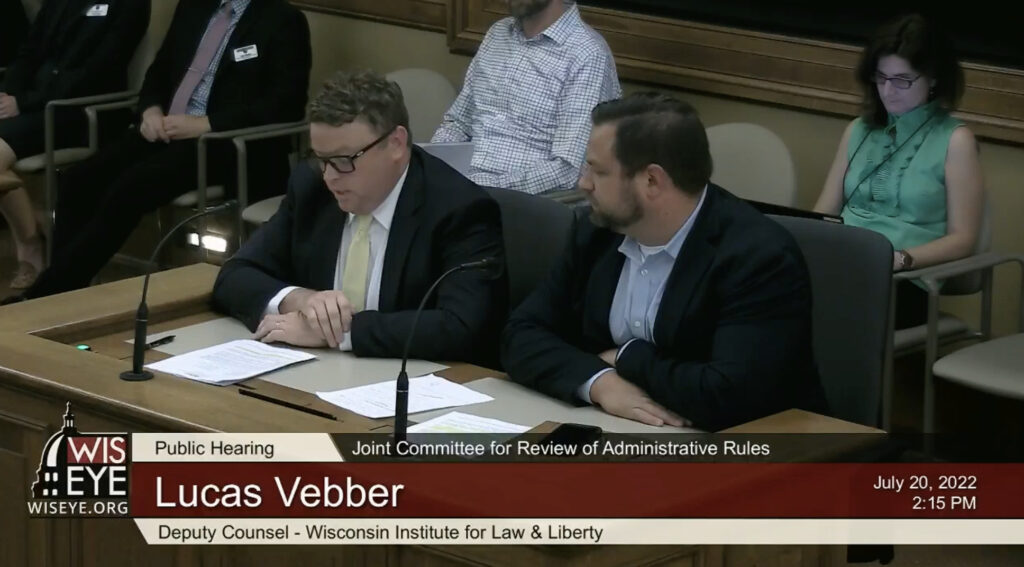The News: The Wisconsin legislature’s Joint Committee for Review of Administrative Rule (JCRAR) suspended a Wisconsin Elections Commission (WEC) rule that addressed whether clerks can “cure”, or fill in missing information, on absentee ballots. The Wisconsin Institute for Law & Liberty (WILL) submitted comment and testified at JCRAR encouraging the committee to suspend the rule because it clearly conflicts with state law that reads, “If a certificate is missing the address of a witness, the ballot may not be counted.”
WILL Deputy Counsel, Lucas Vebber, and Policy Director, Kyle Koenen, testified, Wednesday, at the JCRAR hearing.
The Quote: WILL Deputy Counsel, Lucas Vebber, said, “WEC’s proposed rule is in conflict with state law. JCRAR’s action affirms that state law provides clerks with two options when a ballot has missing information: return the ballot to the elector to correct, or don’t count the ballot.”

WILL’s Comment to JCRAR: Wisconsin state law is crystal clear. Wis. Stat. § 6.87(6d) says, “If a certificate is missing the address of a witness, the ballot may not be counted.” And Wis. Stat. § 6.87(9) states: “If a municipal clerk receives an absentee ballot with an improperly completed certificate or with no certificate, the clerk may return the ballot to the elector, inside the sealed envelope when an envelope is received, together with a new envelope if necessary, whenever time permits the elector to correct the defect and return the ballot within the period authorized…”
Taken together, state law is explicit that clerks have only two options when they receive a ballot with missing address information. Clerks may return the defective ballot to the voter to be cured and then count the ballot if it is returned in a timely manner, or not count the ballot.
But in recent years, WEC interpreted state law to mean if the address is not contained on the envelope that clerks may add the missing information to the ballot envelope if they are reasonably able to discern it and then count the ballot.
The Legislative Audit Bureau’s position, as documented in an October 2021 report on election administration, is that WEC must promulgate a rule on ballot curing if it intends to interpret the statute to allow for corrective action by clerks. But the language of the statute does not permit the clerk to take any “corrective actions” whatsoever. Instead, it directs the clerk not to count the ballot if the address of the witness is missing or return it to the elector to correct the information.
WEC, quite simply, does not have the authority to issue this rule on ballot curing. It conflicts with existing state law and whether ballots can be cured is a matter reserved for the legislature. JCRAR’s action to suspend the rule is proper and justified.
Read More:
- WILL Comment to JCRAR, July 20, 2022

